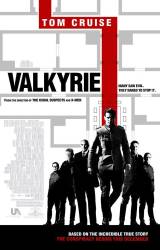
Question: Why did all of the officers and high-ranking officials put out their cigarettes when Hitler's plane landed at the airfield?
Answer: They are supposed to stand at attention when he arrives and salute when he walks past them. It is considered bad form to salute the Führer (or any leader) with a cigarette in your mouth or hand.

Question: I'm not sure about this, but didn't Grim's tires get blown out? If so, right after the next scene, where 14K hits Grim's car, the tires appear intact. It also looked new despite getting blown by a missile.

Question: When Tuvia executed Arkady for his defiant mutiny, why did Tuvia have to turn his body to pull his weapon, instead of just drawing his gun and shooting him dead on the spot right there?
Answer: For two reasons: one, to let him think Tuvia was going and let down Arkady's defenses; and second, Tuvia was quickly and truly debating whether or not to shoot.

Question: How is this possible that Ahsoka became Anakin's apprentice? It makes no sense at all. Only Jedi Masters can have apprentices but Anakin was never given the title of the Master. In Revenge of the Sith he even lamented over the fact that he became a member of Jedi Council without receiving the title of the Master. So how could Ahsoka be his apprentice?
Answer: It's not just Jedi Masters than can have Padawans (apprentice), Jedi Knights can also have them. And at the time Luke was the rank of Knight. In fact, the reference book "The Star Wars Book", it says once a Jedi Knight trains a Padawan to knighthood then they could become a Jedi Master.
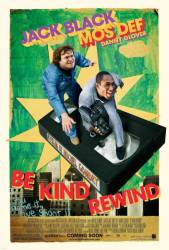
Question: How does being magnetised give you the power to delete tape footage? Wouldn't that work for DVDs, but not for VHS? Also I noticed in the scene where Jerry walks into the video store magnetised, the screen on the tv got all staticky every time I watched it. Was the static intentional?
Answer: VHS is data magnetically encoded on tape. A magnet will wipe them out. DVD/CD's are data encoded in plastic with a laser. Magnets won't hurt them in the slightest. Yes, the static was intentional, magnets can interfere with televisions.
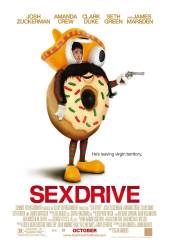
Question: After Rex finds out the key to the Judge is missing, he goes back home on a motorbike. He pulls up the garage door and finds the Judge is not there. He snaps and begins to punch, kick and swear. Breaks down the door, has stuff sprawled out all over the ground, and smokes a cigarette. In both versions of the movie including the deleted scenes, it never shows how Rex was able to find Ian at the motel. How was Rex able to find Ian at a motel in Knoxville, Tennessee?
Answer: LoJack.
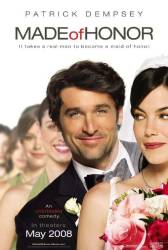
Question: I am a pianist, and have played Debussy, Arabesque no.1, so often. I have seen the movie "Made of Honor" three times, and every time failed to locate the Arabesque in the soundtrack. It is mentioned in the credits. Please tell me at which time in the movie it plays.
Answer: When Michelle and Tom meet up with the three bridesmaids at the hotel, while they're seated at the table we hear the Arabesque No. 1 performed on the harp as faint background music. (Approx. 00:34:05).

Question: If so many famous, high-ranking people were involved, and many of the records of the heist are classified, how did the complete story become known? It would seem no one should have known about the photographs and such.
Answer: The complete story isn't known. There was a bank robbery, and after a few days of press coverage there was a gag order put in place to keep the press from talking about it. No one knows for certain why other than the people who were involved. This film is speculation, a possible reason for why there was a gag order. The producers of the film claim to have been working with an inside source who knew the truth for the gag order and cover-up. Whether the producers really did have an inside source, or that the source was telling the truth, will likely never be known for certain.

Question: When the Duke says that he "cannot" ask Lady Bess to leave his home (after the Duchess discovers their affair), does he simply not want to or is there some reason that he feels he cannot?
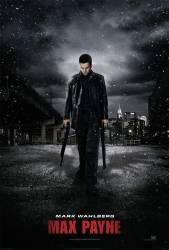
Question: Was this the first PG-13 film to use the F word? If not, what movie was the first?
Answer: Hardly. The word "fuck" has been allowed, subject to certain conditions, in PG-13-rated films ever since the rating was introduced in July 1984. Prior to that (and even occasionally afterwards), it was not unheard of for a film rated as low as PG to get away with using the word, with the first use in a PG-rated film being in All The President's Men in 1976.

Question: This gets described as a reboot rather than a sequel, but why? Nothing directly contradicts the original, as far as I'm aware, the only real change is the title character being recast - hardly unusual for a franchise.
Chosen answer: I haven't seen this movie in several years, but one contradiction I distinctly remember is the Punisher having a deceased daughter in this film, whereas in the 2004 film, he only had a son. The 2004 film had the Punisher's wife and son (named Will here) murdered in Puerto Rico and buried and Tampa. This film takes place in New York, and the cemetery the Punisher goes to has a gravestone for his wife, daughter and son (named Frank, Jr. here). There is also a brief flashback in this scene of the Punisher sitting on a picnic blanket with his dead family around him, which is closer to the comics origin where his family were collateral damage in a gang crossfire. The 2004 film depicted his family as being the deliberate targets of a mob hit and were run over by a truck on a pier.
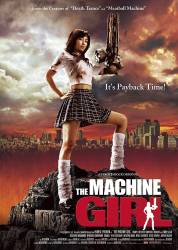
Question: I don't fully understand how Ryugi dies. He simply runs away after the gun ejects itself and is impaled by about a half-dozen rods. What happened and where did the rods come from? Are they the gun-barrels?
Answer: I will have to answer my question after another viewing of the film. The gun is shattered by the "special" bullets that Miki gave to Ami, which were too powerful, causing the gun to fragment when it was yanked off her arm. The gun barrels fall of and impale Ryugi.

Question: When Michael & Hannah begin their affair Michael is 15 years old - in the courtroom scenes, the judge states that Hannah is now 43 years old and also states that the events at Auschwitz took place 20 years prior, which would've made her 23 at the time of Auschwitz and possibly around 23 when she left Michael - meaning that when they had the affair she was only about 7 years his senior. Therefore, when she's 43 in court, that makes him 36 years old when he's at university watching the court proceedings - but surely that's too old for what the film is trying to portray? It seems like he's in his 20's when he's at uni. I don't get it. Surely they couldn't have gotten their timelines so incorrect?
Answer: It is confusing in the movie because it seems like she went from the ticket taking job to the SS job after refusing the office job promotion, which would require literacy. When actually her SS job was prior to the ticket taker job. Was muddled in the movie.
Chosen answer: Where do you figure she was 23 when she left Michael? She had been working at the dispatch office for several years before she meet Michael (as indicated in the scene where her boss promotes her for her long service) -- so this is years after she was at Auschwitz. So she was in her mid-30s when she began the one-year affair with 15-year-old Michael. Then, while at university about 8 years later (when she is in her early 40s), he attends her trial. The timeline is fine.
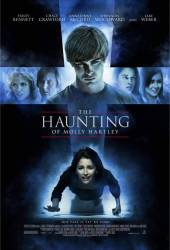
Question: Exactly what happened at the end? I didn't get it. She stabbed herself and then commits her dad. What did it mean?
Answer: Molly attempts to commit suicide to avoid having to join the Devil. Unfortunately for her, the clock strikes midnight before she can kill herself, and thus, having reached her 18th birthday, her soul now belongs to the Devil, who preserves her life. Molly, now one of the Devil's minions, has her father committed to the asylum, presumably having framed her father for her self-inflicted injuries, leaving her free to continue her life working for her new master.
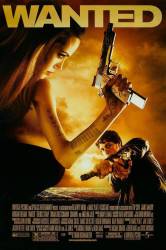
Question: Did anyone else catch on to what the Russian was doing during his time at the fraternity? I believe he was laying down scent trails to guide the mice to key locations in the building. In one close up of the mice (If I remember correctly) you could see them sniffing the ground and apparently following a scent. How else would you get them all into the building without possibly running in Wesley's direction? It seemed like the mice knew where they were going. Before I submit this as trivia, I want to know if someone else thinks the Russian laid down scent trails.
Answer: I believe it is meant to be assumed that the Russian laid down peanut butter or the scent of peanut butter in strategic points for the rats to follow.

Question: Why are the prisoners not allowed to talk to each other in Guantanamo bay? Is it to keep them from planning escapes?
Answer: The Guantanamo prisoners are all perceived terrorists, presumably working in coordination. It's essential that they not communicate with each other, so as to prevent them from leaking info about U.S. security.
I think it's also to prevent the prisoners from planning attacks on the guards.
How would they leak information about U.S. security? Most people in the Middle East have no knowledge about U.S. security.
Because people are occasionally released, and whether terrorists or not, may have information others would find valuable - about what goes on in Guantanamo Bay, if nothing else.
Answer: I guess it is more likely to be for the isolation feeling of not talking to anyone. It is like deprivation sleeping, some kind of psychological thing.



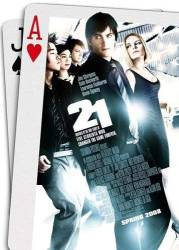
Answer: Hitler was fanatically anti-tobacco: https://www.theatlantic.com/health/archive/2014/07/the-nazis-forgotten-anti-smoking-campaign/373766/.
Brian Katcher